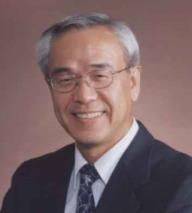Keynote Speaker---Dr. Takeshi Yamakawa, Professor

Professor Emeritus of Kyushu Institute of Technology, Japan
Founding Director of Fuzzy Logic Systems Institute (FLSI), Japan
Biography: Takeshi Yamakawa is now the Founding Director of Fuzzy Logic Systems Institute (FLSI) in Japan. He received the B. Eng. degree in electronics engineering in 1969 from Kyushu Institute Technology, Tobata and the M. Eng. degree in electronics engineering in 1971 from Tohoku University, both in Japan. He received the Ph.D. degree for his study on electrochemical devices in 1974 from Tohoku University, Japan. From 1974 to 1977, he engaged in the development of new electrochemical devices as an Assistant Professor at Tohoku University. From 1977 to 1981 he served as an Assistant Professor in electrical engineering and computer science at Kumamoto University, Japan. From 1981 to 1989 he was an Associate Professor at Kumamoto University. During this time, he developed intrinsic fuzzy logic integrated circuits in pMOS (1983) and CMOS (1985), a fuzzy logic controller hardware (1986), a fuzzy logic computer hardware (1986), a fuzzy memory device (1986), and fuzzy micro processors (rule chip and defuzzifier chip) (1988).
He joined the Faculty of Computer Science and Systems Engineering, Kyushu Institute of Technology, Iizuka, Japan and received a full professorship in April 1989. He established a foundation, Fuzzy Logic Systems Institute (FLSI), in Japan in 1990 to promote the international collaboration on fuzzy logic, neural networks and soft computing, and to promote the spread of the research results. Prof. Yamakawa developed the fuzzy neuron chip in BiCMOS technology which facilitated hand-written character recognition within 1 microsecond by one fuzzy neuron chip (1991). He also developed the chaos chip in CMOS technology (1992).
In 2000 he moved to the new campus, Wakamatsu, of the Kyushu Institute of Technology to be a professor of the Department of Brain Science and Engineering. In March of 2009. he retired from the Kyushu Institute of Technology and in April of 2009 he was engaged to the same university to promote the project for Specially Promoted Research of JSPS.
His main research interest lies on hardware implementation of fuzzy systems, fuzzy neural networks, and chaotic systems. He holds 11 patents in U.S.A., 4 patents in Europe, 1 patent in Australia and 1 patent in Taiwan, and he has also applied for more than 100 patents in Japan. Prof. Yamakawa is a fellow of IEEE, International Fuzzy Systems Association (IFSA) and Japan Society of Fuzzy Theory and Systems (SOFT). He received IEEE 2008 Fuzzy Systems Pioneer Award. He is acting as a member of editorial board and a regional editor of 10 international professional journals. He contributed more than 80 international conferences as a member or the chairman of organizing/programming committee. He was used to organize the International Conference on Fuzzy Logic, Neural Nets and Soft Computing (so called IIZUKA Conference) every two years in Iizuka, Japan. He was the director of two national projects, i.e., the 21st Century Center of Excellence entitled “World of Brain Computing Interwoven out of Animals and Robots” from 2003 to 2008, and the Specially Promoted Research (Project No.20001008) entitled “Identification of Epileptogenic Focus by Employing Softcomputing and Establishment of Minimally Invasive and Definitive Surgery” from June 2008 to March 2012.
Prof. Yamakawa is now engaged in the research on the application of dielectrophoresis to separation, handling, identification and measuring weight of a biological cell, and on drugless suppression of epilepsy by employing bio-feedback technology.
Prof. Yamakawa is now studying acupuncture (oriental medicine) in the college (night course) as a third-year student aiming at the national license of professional acupuncturist.
Prof. Yamakawa plays Karate (Japanese traditional martial arts) and possesses a black belt (5th Dan). He has been playing Shakuhachi for more than 50 years, which is Japanese traditional musical instruments. He also enjoys, every morning, taking care of two gentle dogs and one female American quarter horse on which he enjoys dressage and show jumping.
Speech Title: Distinctive Features of Fuzzy Logic Control
Abstract: We have three procedures to model a complicated nonlinear system.
The first one is a mathematical way, in which the input-output characteristics is represented by mathematical equations derived from given conditions and defined variables and parameters. This procedure is difficult to modify the equations when the system characteristics or the circumstance is changed.
The second one is a parameter distribution such as neural networks, in which the parameters (weights and thresholds) are assigned by evolutional computation, so called learning, by employing numerous practical data. This procedure has the problem of low designability and local minimum.
The third one is a fuzzy system in which a set of fuzzy IF-THEN rules with a natural language describes the input-output characteristics of the system under consideration. The fuzzy IF-THEN rules can be established by interviewing a human expert who has a detailed knowledge of the system under consideration. This procedure exhibits good designability, easy modification and effectiveness. Furthermore the system described with fuzzy IF-THEN rules is structured and thus easy to understand.
In this Keynote Speech, high speed intrinsic fuzzy hardware systems such as fuzzy chips, fuzzy boards, a fuzzy controller, etc. are presented. A typical fuzzy logic control, so called “mouse stabilization,” is touched upon. SOR (Self-Organizing Relationship) network is also presented, which is an extension of SOM (Self-Organizing Maps) and facilitates both of fuzzy knowledge acquisition and fuzzy inference. The distinctive feature of the SOR network is provided with the application to a trailer truck parking problem.